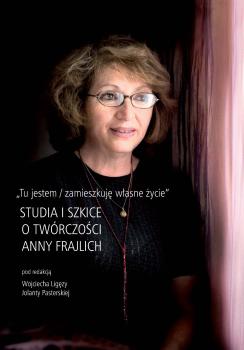My z wieku minionego? : Stałość i zmiana w twórczości poetyckiej Anny Frajlich .......... 121
Synopsis
WE FROM A BYGONE ERA?: PERMANENCE AND CHANGE IN THE POETIC WORKS OF ANNA FRAJLICH
In a recently published collection of Anna Frajlich's poetry one finds in a prominent place the poem entitled Jeszcze jeden fin de siècle [‘One More Fin de Siècle’] in which we read a meaningful description of the poet’s situation in history: “we from a bygone era”. Does Anna Frajlich’s work really lean backwards into the last century? Not quite. In many respects it is also poetry of the beginning of the new era. We find here the fleetingness of human existence characteristic of our time, cultural collages retained from postmodernity (for example, Andersen's fairytales), or inter-textual games (for example, the diptych entitled Z dziennika lektury [‘From a Reading Journal’].
One of the basic antinomies organizing Anna Frajlich worldview is the problem of permanence and change. The poem List Goethego pisany 12 września 1786 roku w Torbole [‘Goethe's Letter Written on September 12, 1786 in Torbole’] expresses constant astonishment over the transience of human existence in the face of things consistently permanent. Based on the same antinomy is the poem Z pogranicza [‘From the Borderland’].
In short, the categories “in the past” and “today”, or “then” and “now” delineate one of two major axes of Anna Frajlich’s poetic reflection on the world. The second axis runs between “here” and “there” – between the New York space and the European space, between the everyday view of the world of the resident of the Big Apple and the childhood space and the family tradition brutally broken by the war.
For many emigrants such time-space positioning cause inner perplexity, an unresolved conflict of values. In Anna Frajlich, however, we deal with the effect of synergy, of which Danuta Mostwin wrote in her book Trzecia wartość [‘The Third Value’] − as a result of the combination of two axiological orders certain values become reinforced, creating a coherent and stable system.





